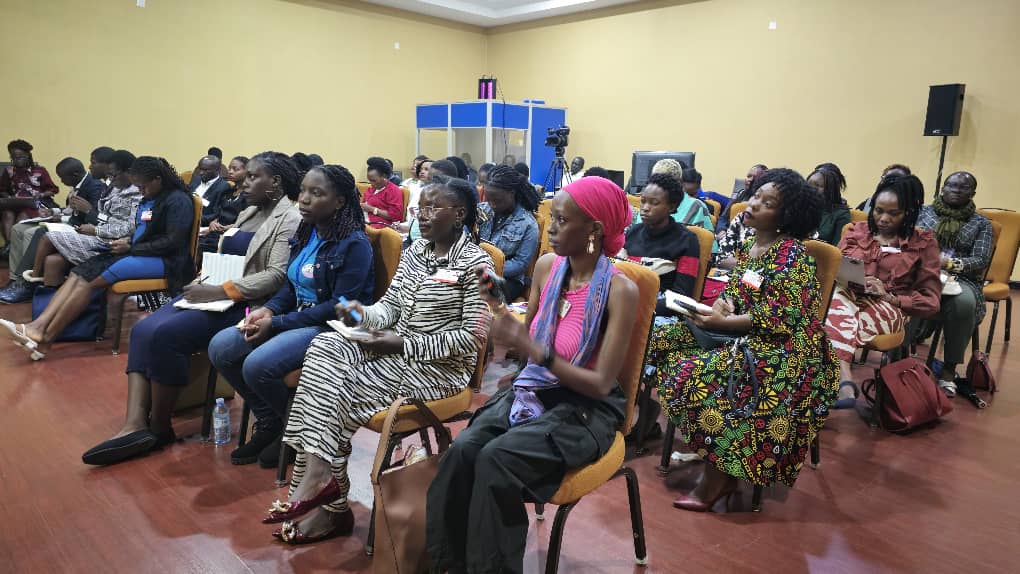Feminist Activists Push for Radical Change in Global Financial Systems

As global demands for systemic change intensify, feminist leaders are rising to confront the deep inequalities upheld by institutions like the IMF and World Bank.
From grassroots gatherings to international summits, feminist leaders and economic justice activists are boldly challenging these towering financial bodies that have long dictated the terms of the global economy.
A key player in this movement is Akina Mama wa Afrika (AMwA), a pan-African feminist organization committed to creating alternative spaces for civil society outside the co-opted forums created by Bretton Woods institutions.
AMwA's initiative is focused on building platforms where feminist alternatives don't just occupy space—they actively shape policy and drive tangible change.
The organization insists that unless civil society operates beyond the confines of the global financial system, feminist discourse will remain appropriated and insufficient to challenge the structures of oppression.
Faith Lumonya, a passionate advocate for economic justice, shared her frustrations at a gathering of activists.
"After decades of advocacy, the IMF and World Bank still protect systems that deepen global inequality," she said.
"Our voices are paraded on their stages, but our ideas never make it into the policies that govern our lives."
This performative engagement, Faith argued, is not only hollow but dangerous, as it legitimizes the very systems that cause harm and perpetuate inequality.
Echoing her sentiments, Bhumika Muchhala, a fierce advocate for economic justice, highlighted the impotence of the IMF and World Bank's internal accountability mechanisms.
She criticised the institutions’ failure to address the damage caused by their own policies, even when their data reveals structural adjustments that harm the very countries they claim to help.
"The IMF is a well-oiled neoliberal machine, even when their own data shows that structural adjustment policies are hurting the very countries they claim to help, they refuse to change," Muchhala stated.
The power imbalance that persists within these institutions runs deep.
The global financial order crafted post-World War II still overwhelmingly favors wealthy nations, with voting power in the IMF and World Bank stacked in their favour.
This leaves countries in the Global South with little influence over decisions that profoundly impact their economic survival.
Elaine Zuckerman, a former advocate for gender integration within these institutions, shared her disillusionment.
What began as an effort to centre women's rights was quickly co-opted by neoliberalism.
"They turned gender equality into a market tool—something to make corporations stronger, not communities," Zuckerman lamented.
Emilia Reyes, another leading feminist voice, took this critique further, warning of how the climate and gender agendas are being hijacked by the same structures that perpetuate domination.
"Sustainability, in their hands, becomes a new mask for empire," Reyes said, pointing out that the so-called 'green' and 'inclusive' labels often represent little more than another layer of exploitation.
In response, AMwA and its allies are building alternative spaces for feminist civil society to come together without the overpowering influence of global financial power.
These spaces aim to create platforms where new systems rooted in justice, equity, and community—rather than corporate profit—can thrive.
The message from these activists is unequivocal: the time for superficial reforms is over.
True transformation requires dismantling the existing systems and rebuilding from the ground up.
It demands listening not to the loudest or wealthiest, but to those who have long borne the costs of a broken system.
In these alternative spaces, a new world is being envisioned—one conversation, one declaration, and one act of courage at a time.
Feminist leaders are leading a global movement to challenge the IMF and World Bank’s entrenched power, advocating for economic justice and systems of governance that prioritize community, sustainability, and equity over corporate profit.



0 Comments